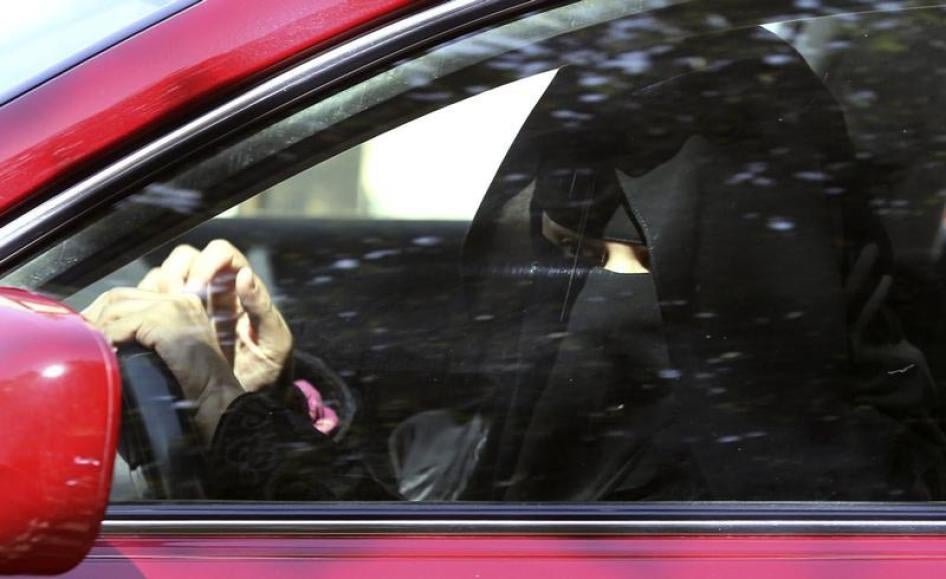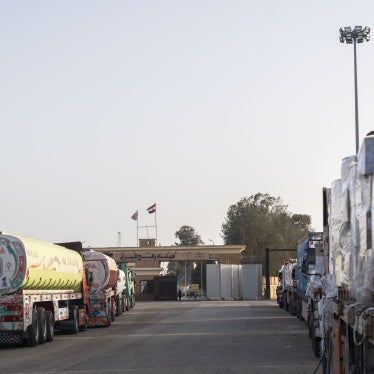(Beirut) – Saudi authorities in 2016 announced an ambitious roadmap for economic and developmental growth, but proposed changes did not include critical human rights improvements, Human Rights Watch said today in its World Report 2017. Issues such as protecting freedom of expression or reforming the justice system were not included.
Saudi Arabia cracks down on activists seeking reform and on individuals voicing peaceful dissent. In 2016, more than a dozen prominent activists convicted on vague charges arising from their peaceful activities were serving lengthy prison sentences. Others faced trial for similar offenses.
“Saudi Arabia’s plans for economic and social changes neglect key human rights improvements that would allow Saudi citizens to participate with the government in planning their future,” said Sarah Leah Whitson, Middle East director at Human Rights Watch. “Instead of locking up reformists and dissidents, Saudi Arabia should empower them to play an active role in the reform process.”
In the 687-page World Report, its 27th edition, Human Rights Watch reviews human rights practices in more than 90 countries. In his introductory essay, Executive Director Kenneth Roth writes that a new generation of authoritarian populists seeks to overturn the concept of human rights protections, treating rights as an impediment to the majority will. For those who feel left behind by the global economy and increasingly fear violent crime, civil society groups, the media, and the public have key roles to play in reaffirming the values on which rights-respecting democracy has been built.
As the leader of the nine-nation coalition that began military operations against the Houthis and allied forces in Yemen on March 26, 2015, Saudi Arabia has committed numerous violations of international humanitarian law. Human Rights Watch has documented 58 unlawful airstrikes by the coalition, some of which may amount to war crimes, killing nearly 800 civilians, and hitting homes, markets, hospitals, schools, and mosques.
Saudi Arabia executed 149 people between January and early December 2016, including a mass execution of 47 men on January 2, 2016. Forty-three were reportedly associated with Al Qaeda attacks in the 2000s, and four were Shia allegedly involved in protest-related crimes in 2011 and 2012, including a prominent Shia cleric, Nimr al-Nimr. It was Saudi Arabia’s largest mass execution since 1980.
In December 2015, the Saudi cabinet approved a new law permitting the establishment of nongovernmental organizations for the first time, but the law permits authorities to dissolve or deny registration to any organization on vague grounds.
Saudi Arabia does not tolerate public worship by adherents of religions other than Islam and systematically discriminates against Muslim religious minorities, notably Twelver Shia and Ismailis, including in public education, the justice system, religious freedom, and employment. Government-affiliated religious authorities disparage Shia Islam in public statements and documents.
Saudi Arabia’s discriminatory male guardianship system remains intact despite government pledges to abolish it. Under this system, adult women must obtain permission from a male guardian – usually a husband, father, brother, or son – to travel, marry, or be released from prison. They may be required to provide guardian consent to get a job or health care. Women regularly face difficulty conducting a range of transactions without a male relative, from renting an apartment to filing legal claims. Women remain banned from driving cars in Saudi Arabia.
“Saudi Arabia should free imprisoned activists and take other concrete, visible steps to show the government is willing to improve its dismal human rights record,” Whitson said.









